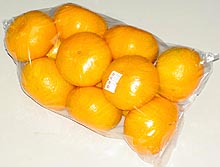| Home A B C D E F G H I J K L M N O P Q R S T U V W X Y Z |
|
Home |
What Does Vitamin C Do?
Vitamin C is a water-soluble vitamin, also known as ascorbic acid. Humans are unable to synthesize vitamin C; therefore, it must be obtained from supplements or a balanced diet. Vitamin C plays a key role in many functions in your body. Some of these functions, according to the website Vitamincfoundation.org, are as follows: Article continues below:
A severe vitamin C deficiency will result in the disease called scurvy. The symptoms are diarrhea, fever and irritability, spots on the skin, bleeding gums, paleness, weakness and sunken eyes. When you do not consume enough vitamin C similar symptoms will appear like swollen gums, wounds that donít heal, easy bruising, and bleeding gums. The Recommended Dietary Allowance (RDA) average for a nonsmoking person should be around 60mg of vitamin C per day. This can be found in 3/4 cup of orange juice. People who smoke need more vitamin C than others. Their requirement is 100 mg per day. Too much vitamin C is not harmful, since this vitamin is water-soluble and any excess will be excreted in your urine. Foods that are high in vitamin C include citrus fruits such as oranges, tangerines, grapefruits and vegetables such as tomatoes, peppers, broccoli, and even potatoes.
|
||
|
|
||
|
Glossary References Links Contact
|